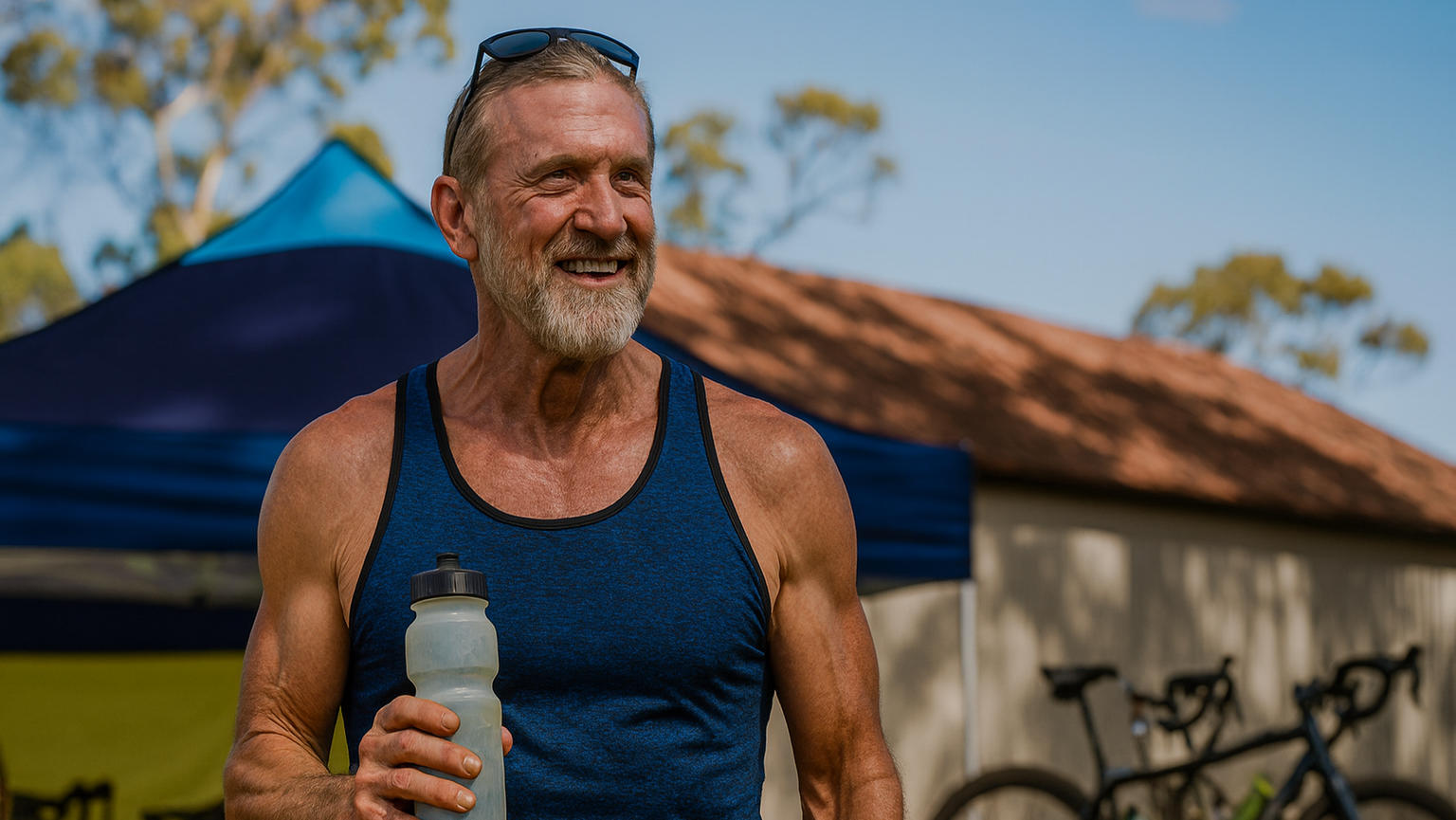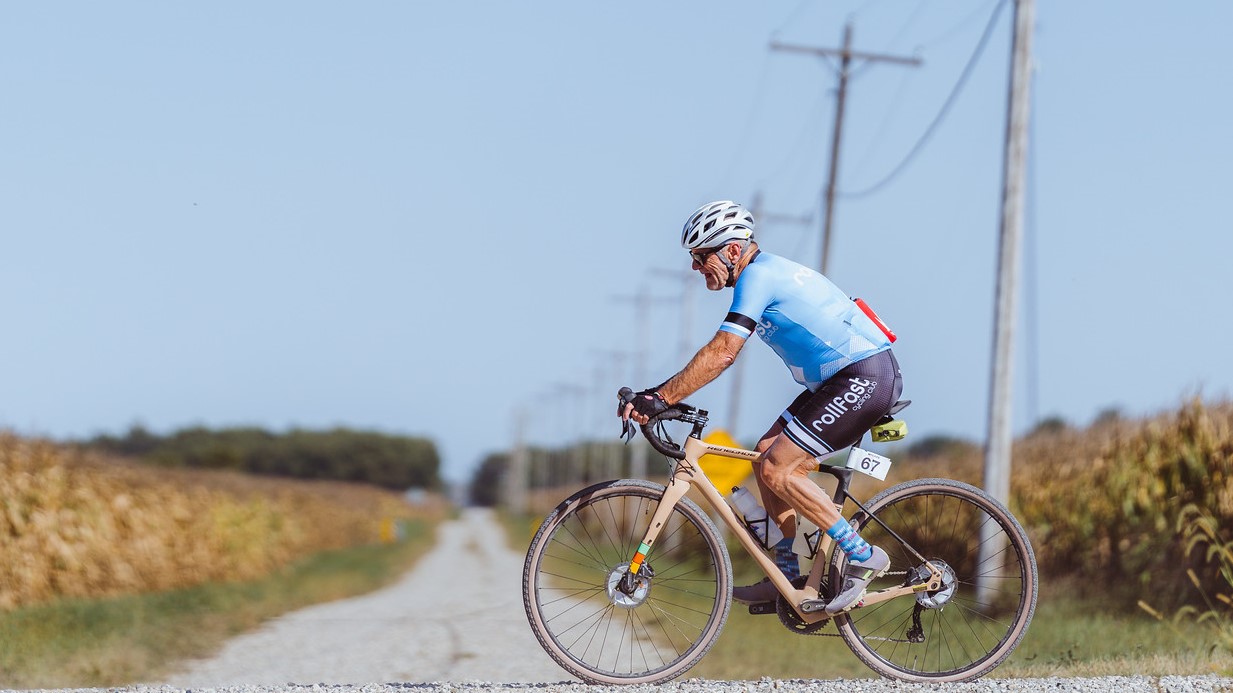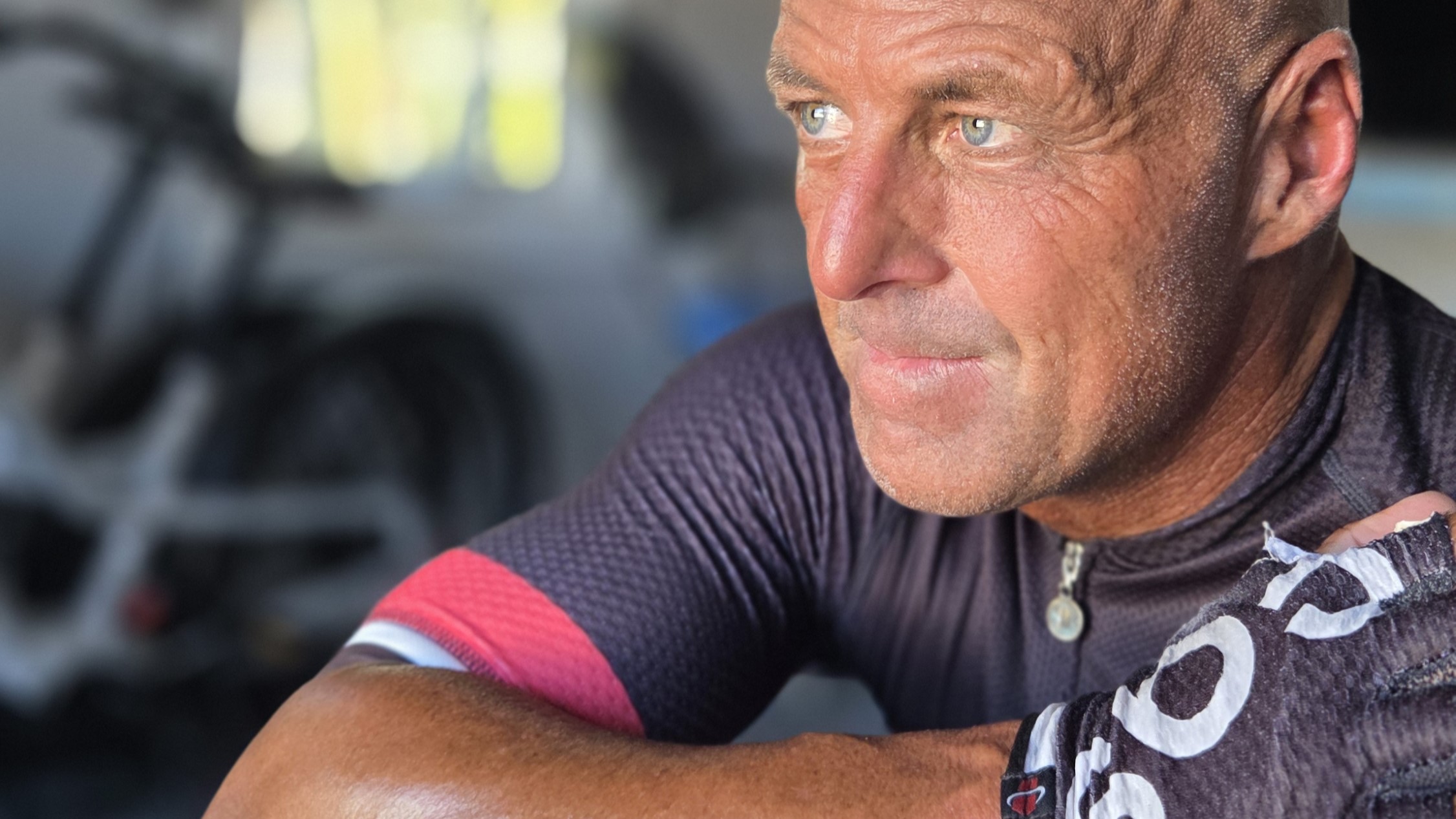TRT for Masters Endurance Athletes
If you’ve been around endurance sports long enough, you’ve probably heard the whispers: “So-and-so started TRT…” or “I’m thinking about getting my levels checked.” Testosterone Replacement Therapy (TRT) has gone from taboo to normal conversation, and for good reason.
But let’s be clear from the start. TRT isn’t a magic fix. It’s one lever, and it only works when the others are pulled too. Nutrition, strength training, recovery, and sleep all matter just as much.
The truth about testosterone
Testosterone isn’t just about muscle or masculinity. It’s a foundational hormone that influences metabolism, mood, energy, and physical resilience. It supports bone density, red blood cell production, and even how you respond to stress.
In men, levels naturally decline about 1–2% per year starting in the 30s. Women experience their own version of this around menopause. That decline doesn’t mean the game is over; it just means you need to play smarter.
Recognizing when something’s off
If you’re constantly fatigued, recovering slowly, losing muscle, or struggling with motivation, low testosterone could be part of the story. A simple blood test can help confirm whether that’s the case, but lifestyle factors like poor sleep, under-fueling, and excess stress are often just as important.
Address those first. You might find that once you’re fueling properly, lifting consistently, and sleeping deeply, the body rebounds naturally.
Why testosterone matters for long-term health and performance
1. Longevity and Healthspan
- Metabolic Support: Testosterone helps regulate body composition, blood sugar, and lipids. Adequate protein (around 1-1.5g per pound of body weight daily) and strength training further improve insulin sensitivity and reduce age-related fat gain.
- Bone Density & Joint Health: Testosterone supports strong bones, but lifting to near failure and other weight-bearing work amplify that benefit. Together, they protect long-term mobility and reduce injury risk.
- Cognitive and Emotional Health: Balanced hormones improve clarity, mood, and confidence. Combined with solid nutrition, quality recovery, and consistent sleep, they help you stay sharp and emotionally steady as you age.
2. Strength and Muscular Health
- Fighting Sarcopenia: Testosterone, along with a protein-rich diet and regular lifting, directly combats muscle loss that comes with aging.
- Recovery and Adaptation: TRT can enhance tissue repair, but its effects multiply when paired with proper fueling, progressive overload, and sleep-driven recovery.
- Injury Resilience: Strong muscles and connective tissues rely on both internal hormone balance and external training stress. Recovery is the bridge that connects them.
3. Endurance and Energy
- Oxygen Delivery: Testosterone supports red blood cell production, improving oxygen transport, a major benefit for endurance performance. Structured aerobic work ensures you can fully use that capacity.
- Motivation and Drive: Hormones play a role in focus, drive, and overall “spark,” but consistency still comes from smart training habits and adequate recovery.
Training, recovery, and balance
Here’s the paradox. Short, intense workouts can spike testosterone; endless endurance training with poor fueling can suppress it. Some long-course athletes even finish events with levels low enough to be considered clinically deficient.
The takeaway? Balance wins. Fuel your training. Lift regularly and to near failure. Sleep deeply. And treat recovery with the same intention as your workouts.
Where TRT fits in
When testosterone is genuinely low and symptoms persist, TRT can help restore balance. The goal isn’t to supercharge your performance, it’s to bring your body back to normal physiological levels. Under medical supervision, athletes often experience improved recovery, mood, energy, and drive.
TRT doesn’t replace effort. It makes effort more effective.
The elephant in the room: cycling’s history with testosterone
Cycling has a complicated past with testosterone. It was abused in the pro ranks, and that shadow still lingers. But for masters athletes, the conversation is about health, not doping.
The goal isn’t chasing the podium at all costs. It’s extending the number of years you can train, perform, and live well. Sometimes, what’s best for long-term health doesn’t perfectly align with anti-doping rules. If you race competitively, follow regulations and apply for a Therapeutic Use Exemption (TUE). If your “race” is against time and aging, your focus can be on optimizing healthspan, not hardware.
One lever in the bigger picture of Speed, Strength, and Longevity
If TRT is a lever, these are the gears that keep everything moving smoothly:
- Protein: Aim for about 1-1.5g per pound of body weight daily. Spread it across meals to maximize recovery and muscle repair.
- Strength Training: Lift to near failure. It’s not about heavy loads, it’s about effort and consistency that challenge the muscle to adapt.
- Sleep: Most testosterone release happens during sleep. Prioritize consistency, duration, and quality.
- Fuel: Under-fueling is one of the quickest ways to suppress hormones. Match macros to your workload.
- Body Composition: Excess fat can suppress testosterone. Staying lean through strength work and balanced nutrition supports natural hormone health.
- Moderation: Limit alcohol and manage stress. Hormones thrive in a stable, well-recovered body.
A decision framework that keeps you grounded
- Clarify your goal. Are you chasing healthspan, performance, or both?
- Get tested if you suspect an issue. Know where you stand.
- Fix the fundamentals. Sleep, protein, strength work, recovery, and fueling.
- If needed, explore TRT with professional guidance. Understand the risks, the benefits, and monitor regularly.
The Rollfast perspective
At Rollfast Coaching, we focus on Speed, Strength, and Longevity. TRT can be a valuable tool, but it never replaces the fundamentals. The foundation is always built on consistent habits; high protein intake, structured bike training, lifting to near failure, proper fueling, quality recovery, and deep, restorative sleep.
Longevity isn’t about chasing youth. It’s about staying strong, capable, and confident for as long as possible.
If TRT becomes part of your path, make it a thoughtful choice, guided by science, rooted in health, and aligned with the life you want to live.






